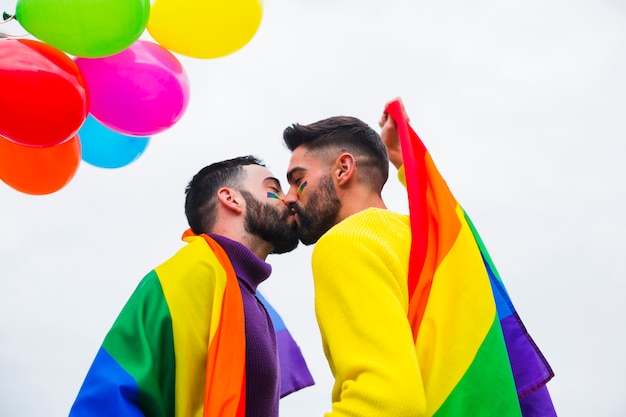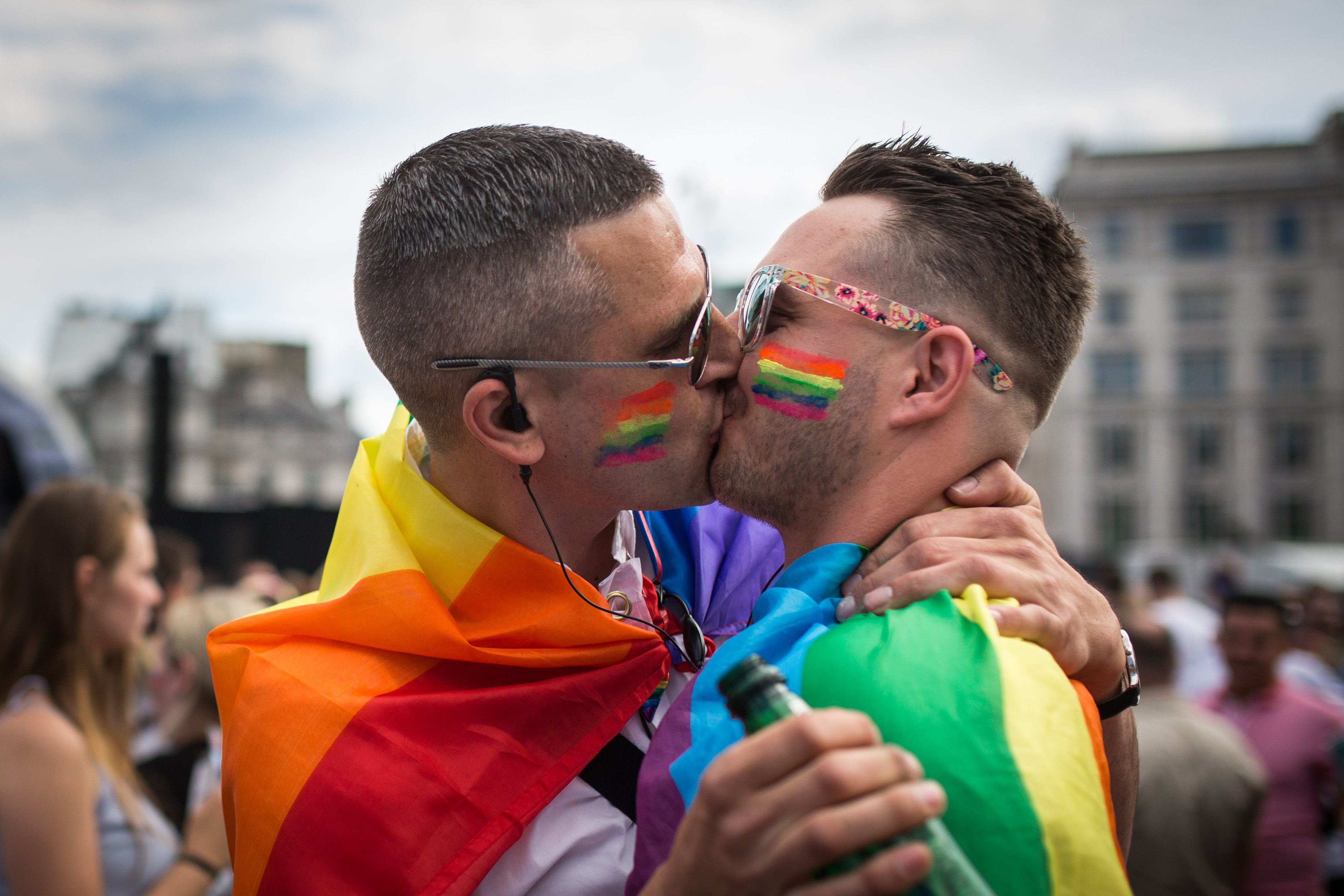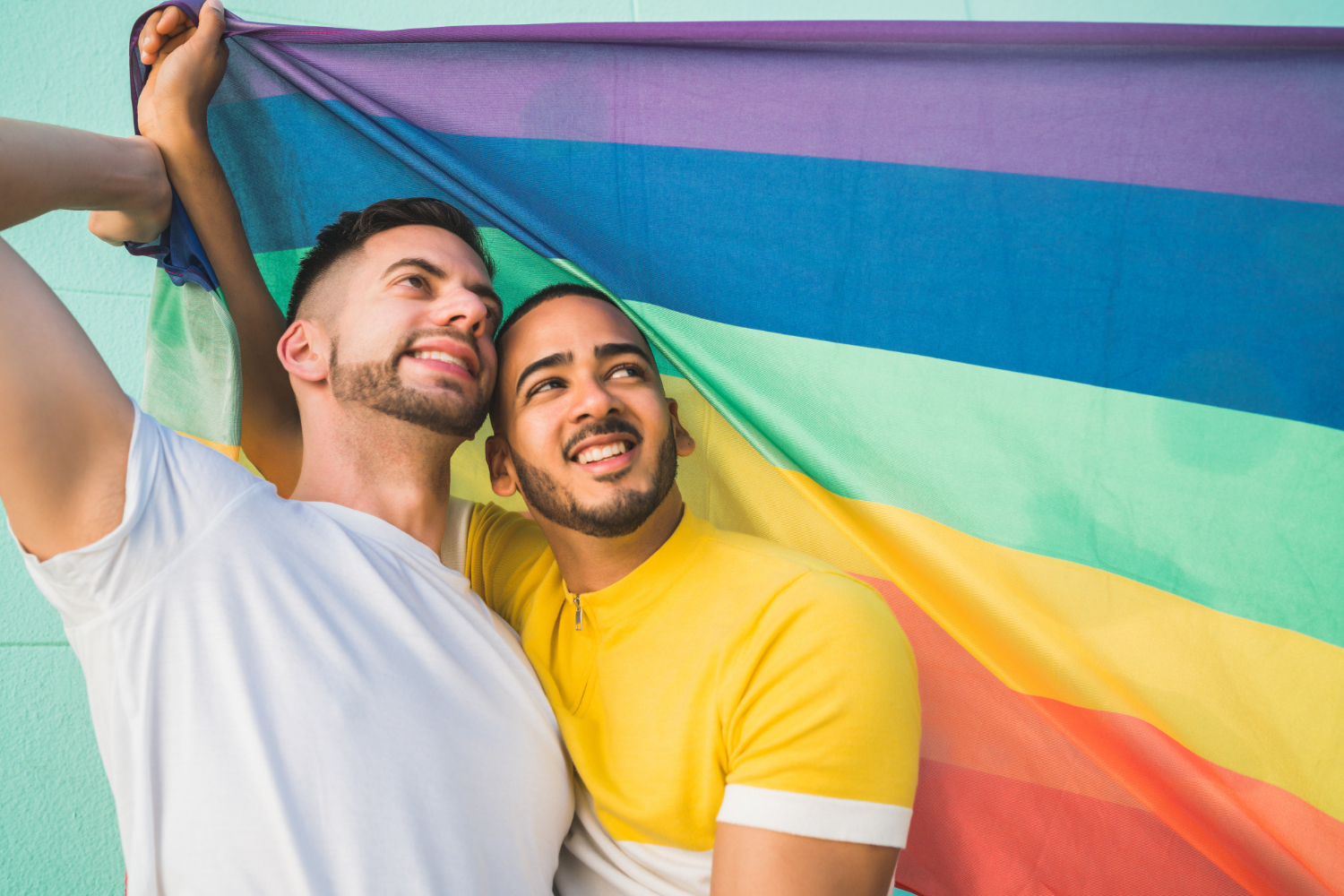Exploring The Lives Of Gay Packers: Identity, Rights, And Community
Detail Author:
- Name : Hoyt Strosin Sr.
- Username : miracle06
- Email : prudence42@yahoo.com
- Birthdate : 2004-12-11
- Address : 398 Cathrine Alley Suite 936 New Khalil, NH 86373-5544
- Phone : 646-567-7609
- Company : O'Conner Group
- Job : Environmental Engineer
- Bio : Magnam eos sit repudiandae ducimus fuga rerum. Blanditiis nemo temporibus libero qui ea. Consequatur nobis nobis quas culpa blanditiis.
Socials
facebook:
- url : https://facebook.com/mckayla5763
- username : mckayla5763
- bio : Error quas consequuntur sed ut est deleniti quo. Earum enim beatae sit alias.
- followers : 1273
- following : 310
tiktok:
- url : https://tiktok.com/@mckaylajast
- username : mckaylajast
- bio : Rem quibusdam ad et atque autem qui. Mollitia consequatur rem quis et.
- followers : 4201
- following : 1358
linkedin:
- url : https://linkedin.com/in/mckayla_xx
- username : mckayla_xx
- bio : Ratione ut id nobis quia.
- followers : 5433
- following : 589
instagram:
- url : https://instagram.com/mckayla_jast
- username : mckayla_jast
- bio : Fugit fugit nihil excepturi soluta. Natus laborum ut amet nulla sit.
- followers : 2747
- following : 721
Exploring the lives of gay individuals, sometimes referred to as 'gay packers' in a broad sense, brings us to a conversation about identity, human rights, and the journey many people take. This discussion is very important for understanding the diverse experiences within our world. It helps us see the different paths people walk and the courage they show every day. Really, it's about seeing the full picture of what it means to be human in many different ways.
When we talk about sexual orientation, it's about who a person feels a deep, lasting attraction to, whether that's men, women, or both. This personal feeling is a core part of who someone is, a bit like how some people might be drawn to art or others to nature. It's a fundamental aspect of their emotional and romantic world, and it shapes how they connect with others, too it's almost.
The term 'gay packers' here points to gay individuals who are navigating life, carrying their identities, and often working to make the world a more accepting place. It reflects a collective of people who stand strong, advocating for their rights and for the rights of others in the LGBTQ+ community. This journey, as a matter of fact, often involves both personal discovery and wider social engagement.
Table of Contents
- Understanding Identity: What it Means to be Gay
- A Voice for Change: Muhsin Hendricks
- The Journey of Gay Packers: Facing Challenges, Finding Strength
- Community and Connection: Building a Supportive World
- Frequently Asked Questions
- A Path Forward
Understanding Identity: What it Means to be Gay
When we discuss being gay, we are talking about a person's sexual orientation. This means an ongoing way of feeling emotional, romantic, and also sexual connections to others. It's about who a person is drawn to, and this can be men, women, or both sexes, you know. This is a fundamental part of who they are, a bit like having a favorite color or a natural talent.
Beyond Labels: The Spectrum of Attraction
Sexual orientation is a deeply personal aspect of identity. It's not a choice someone makes, but rather an enduring pattern of attraction that forms over time. For gay individuals, this pattern means attractions are primarily to people of the same gender. This understanding helps us appreciate the wide range of human experiences, and how each person's inner world is unique, as a matter of fact.
There are many different ways people express their identity, and attraction is one part of that. It's really about the heart's pull towards another person. This pull can feel quite strong and natural. So, when we speak of gay individuals, we are speaking of those whose heart's pull is towards someone of their own gender. This is a simple truth about them, and it's important to recognize that, too it's almost.
Gender Identity: A Personal Sense of Self
Alongside sexual orientation, it's also important to grasp what transgender means. Transgender is a broad term that describes people whose inner sense of being male or female, or their way of showing their gender, is different from what society might expect based on their birth. It's about how someone truly feels inside about their own gender, not about who they are attracted to, necessarily. This inner feeling is very personal, and it helps shape how they see themselves in the world, you know.
For someone who is transgender, their gender identity might not match the gender they were assigned at birth. This is a crucial distinction to make, as gender identity and sexual orientation are separate parts of a person's overall identity. Understanding this helps us respect each person's unique journey. It means giving people the space to define themselves, which is a basic kindness, really.
A Voice for Change: Muhsin Hendricks
In the ongoing conversation about gay individuals and their place in society, some people stand out as beacons of advocacy and courage. One such person was Muhsin Hendricks. He was an openly gay imam and also an Islamic scholar, who dedicated his life to advocating for LGBTQ+ rights. His work showed that faith and LGBTQ+ identity could indeed coexist, a message that resonated with many, and still does, apparently.
Sadly, on February 15, Muhsin Hendricks was shot and killed in Gqeberha, South Africa. This happened as he was leaving to officiate a ceremony. His death was a terrible loss for the LGBTQ+ community and for human rights efforts everywhere. His story, very, highlights the real dangers faced by those who openly champion for equality and acceptance. It serves as a stark reminder of the ongoing struggle for safety and recognition, a bit like a warning sign.
Muhsin Hendricks: Personal Details
| Name | Muhsin Hendricks |
| Identity | Openly Gay Imam, Islamic Scholar, LGBT Rights Activist |
| Location of Work | Gqeberha, South Africa |
| Date of Passing | February 15 (specific year not provided in text) |
| Cause of Passing | Shot and killed |
| Contribution | Advocacy for LGBTQ+ rights, promoting coexistence of faith and identity |
The Journey of Gay Packers: Facing Challenges, Finding Strength
The path for gay individuals, these 'gay packers' moving through life, often includes facing many challenges. It's a journey that can demand a great deal of inner strength and determination. These challenges can range from everyday misunderstandings to serious forms of harm and legal setbacks, and so on. Yet, through it all, there is a remarkable resilience that shines through, as a matter of fact.
Confronting Discrimination and Bullying
A significant challenge for many gay and transgender individuals, especially when they are younger, is widespread bullying and harassment. Reports document a range of abuses against lesbian, gay, bisexual, and transgender students in secondary school settings. This kind of treatment can make school a very difficult place to be. It creates an environment where learning becomes secondary to feeling safe, which is a real shame, honestly.
These experiences of bullying can have a lasting impact on young people's lives. It affects their sense of self and their ability to trust others. The stories of students facing such harsh treatment remind us how important it is to create truly safe and welcoming spaces for everyone, especially in places where children learn and grow. It's about building a foundation of respect for every person, basically.
The Fight for Rights and Recognition
The fight for human rights for LGBTQ+ people is a global effort, and it's ongoing. In 2020, for instance, the United States received recommendations from countries like Iceland, Belgium, France, and Malta concerning LGBTQ+ rights during its universal periodic review cycle. This shows that even nations that see themselves as progressive still have areas where they can improve their support for these rights, you know.
On the other hand, some places are seeing a tightening of restrictions. Hungary, for example, passed a very strict law on March 18 that will outlaw Pride events and similar gatherings. This action deepened the repression of lesbian, gay, bisexual, and transgender people in that country. These legal moves are quite worrying and show how quickly rights can be rolled back. It's a stark reminder that vigilance is always needed when it comes to human rights, seriously.
Organizations like Human Rights Watch work tirelessly for the rights of lesbian, gay, bisexual, and transgender peoples. They collaborate with activists who represent many different identities and issues. Their work is crucial in documenting abuses, advocating for policy changes, and raising global awareness. They are, in a way, the 'packers' of human rights, carrying the burden of advocacy forward, pretty much.
Supporting Recovery and Well-being
Another very important area of work involves helping gay and bisexual men recover from conversion therapy. This practice aims to change a person's sexual orientation, and it is widely discredited by medical and psychological organizations. It can cause significant harm to individuals, leading to emotional distress and other difficulties. The need for support services for survivors of such practices is quite clear, and very necessary, in fact.
Providing pathways to recovery means offering safe spaces and professional help. It's about affirming a person's true identity and helping them heal from the trauma of being told that who they are is wrong. This kind of support is a vital part of ensuring the well-being and mental health of gay and bisexual individuals. It's about rebuilding lives and fostering a sense of self-acceptance, obviously.
Community and Connection: Building a Supportive World
Building a world where gay individuals, these 'gay packers' of identity and experience, can thrive means creating strong communities and connections. It involves providing resources, ensuring legal protections, and fostering an environment of acceptance for everyone. This effort requires participation from many different parts of society, from schools to legal systems, and even families, too it's almost.
Resources for Students and Educators
For schools, having clear information and resources is key when dealing with sensitive issues involving gay, lesbian, and bisexual students. Programs like "Just the Facts" provide valuable information for principals, educators, and school personnel. These resources help school staff understand the challenges these students face and how to create a supportive and inclusive learning environment. It's about giving them the tools to do their job well, basically.
When educators have the right information, they can better address bullying, provide appropriate support, and ensure that all students feel safe and respected. This kind of proactive approach helps build a school culture where diversity is not just tolerated but genuinely celebrated. It means every student, regardless of their sexual orientation, can focus on their education and personal growth, which is really what school is all about.
Family Matters: Legal Protections and Parenting
Family structures also reflect the diversity of human experience. When considering child custody, courts have commonly looked at cases involving one lesbian or gay parent and one heterosexual parent. The key question often becomes whether a parent’s sexual orientation should be a factor in determining custody. Generally, courts aim to make decisions that are in the best interest of the child, and a parent's sexual orientation, by itself, does not determine their ability to provide a loving home. This is a very important distinction, as a matter of fact.
The legal system, quite rightly, tends to focus on the parent's capacity to care for the child, their stability, and the child's well-being, rather than the parent's identity. This approach helps ensure that all parents, including gay and lesbian parents, are treated fairly under the law. It underscores the principle that love and care are what truly matter in raising a child, and not a parent's sexual orientation, honestly.
Frequently Asked Questions
Here are some common questions people have about the topics we've discussed:
What is the meaning of sexual orientation?
Sexual orientation refers to a person's enduring pattern of emotional, romantic, and/or sexual attractions to others. This can be to men, women, or both sexes. It's a fundamental part of who someone is attracted to, and it's not a choice. It's a deep, personal feeling, you know.
How do human rights organizations support LGBTQ+ people?
Organizations like Human Rights Watch actively work to protect and advance the rights of lesbian, gay, bisexual, and transgender people. They do this by documenting abuses, advocating for policy changes, and collaborating with activists globally. They basically shine a light on injustices and push for a more equitable world, pretty much.
What are some challenges faced by LGBTQ+ students in schools?
LGBTQ+ students often face widespread bullying and harassment in secondary schools. This can include various forms of abuse that make their learning environment unsafe and difficult. It's a significant issue that many reports have documented, and it impacts their well-being quite a bit.
A Path Forward
Understanding the lives of gay individuals, these 'gay packers' who move through the world with their unique identities, helps us build a more inclusive society. It means recognizing their experiences, supporting their rights, and working towards a future where everyone feels safe and valued. This ongoing effort requires continuous learning and open conversations. We can all play a part in fostering greater understanding and acceptance for every person, you know. To learn more about sexual orientation and identity, you can explore our site. Also, for additional resources on LGBTQ+ human rights, you might find helpful information there, too it's almost.

Young gay couple kissing on parade | Free Photo

Gay Marriage US Supreme Court Ruling: See Gay Pride Around the World | TIME

Interactuar más allá de la fiesta, el reto de los hombres gays – Anodis